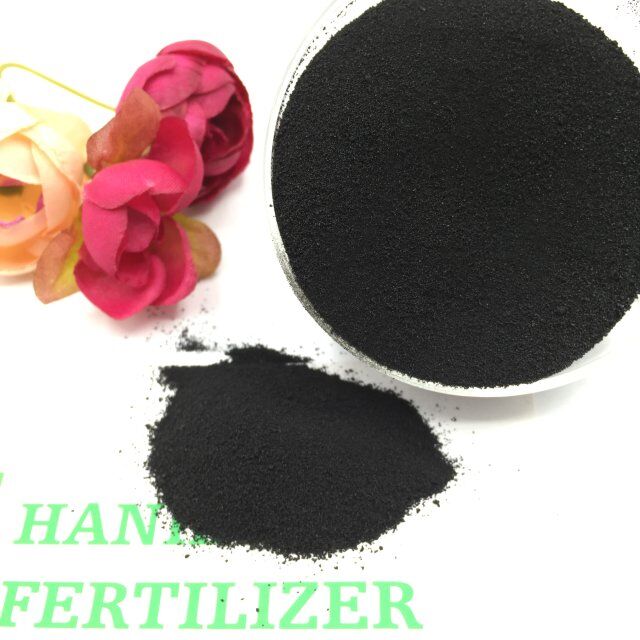
Oct . 19, 2024 20:30 Back to list
21-7-7 water soluble fertilizer factory
The Importance of 21-7-7 Water Soluble Fertilizer A Key to Modern Agriculture
In the world of agriculture, the need for efficient and effective fertilizers has never been more critical. As global populations continue to grow and arable land decreases, farmers are increasingly turning to specialized products to enhance crop yields and ensure food security. Among these, water-soluble fertilizers have gained significant attention for their ability to deliver essential nutrients quickly and efficiently. One such formulation is the 21-7-7 water-soluble fertilizer, which contains a balanced mix of nitrogen, phosphorus, and potassium, making it a valuable asset for modern farming practices.
Understanding 21-7-7 Fertilizer Composition
The numbers in the 21-7-7 formula represent the percentage of each nutrient component contained within the fertilizer. The prominent nitrogen content of 21% plays a crucial role in promoting vegetative growth and increasing chlorophyll production. Nitrogen is essential for the synthesis of amino acids, proteins, and nucleotides, all of which are necessary for plant life. This makes it a key ingredient for leafy greens and crops that are harvested for their foliage.
The phosphorus content at 7% is equally important, as phosphorus is vital for root development, flowering, and fruiting. It aids in energy transfer within the plant and is an integral part of DNA and RNA synthesis. Moreover, adequate phosphorus availability can lead to improved crop establishment and resilience against environmental stressors.
The final component, potassium at 7%, contributes significantly to overall plant health. Potassium aids in the regulation of stomatal openings, thereby ensuring optimal water usage within the plant. It also plays a pivotal role in enzyme activation and photosynthesis, leading to increased resistance to diseases and improved quality of produce.
Benefits of Water-Soluble Fertilizers
Water-soluble fertilizers, like the 21-7-7 formulation, offer numerous advantages over traditional granular fertilizers. One of the most significant benefits is the rapid availability of nutrients. When dissolved in water, these fertilizers provide an instant supply of essential nutrients directly to the plant roots, allowing for immediate uptake. This is particularly beneficial during critical growth stages when plants require a quick boost of nutrients.
21-7-7 water soluble fertilizer factory

Another advantage lies in the ability to control nutrient application precisely. Farmers can tailor their fertilization programs to meet the specific needs of their crops, ensuring that nutrients are available when plants require them most. This precision reduces nutrient wastage and minimizes the risk of leaching, which can adversely affect nearby water sources and contribute to environmental degradation.
Sustainability and Environmental Impact
As the agricultural sector faces increasing scrutiny over its environmental impact, the use of water-soluble fertilizers represents a step towards more sustainable farming practices. Efficient nutrient delivery reduces the likelihood of excess fertilizer application, which can lead to runoff and pollution. By employing a balanced fertilizer like 21-7-7, farmers can promote healthy plant growth while minimizing their ecological footprint.
Moreover, the ability to dissolve and apply these fertilizers through irrigation systems introduces the possibility of fertigation, where water and nutrients are delivered simultaneously. This technique not only enhances nutrient uptake efficiency but also promotes water conservation, an essential consideration in regions facing water scarcity.
Conclusion
The 21-7-7 water-soluble fertilizer is a prime example of how modern agriculture is evolving to meet the challenges posed by population growth, climate change, and environmental sustainability. By providing a well-rounded mix of essential nutrients, this fertilizer supports robust plant growth and improves crop quality.
As farmers around the globe adapt to new technologies and practices, the continued development of efficient fertilizers will play a vital role in ensuring food security for future generations. Investing in quality agricultural inputs, such as 21-7-7 water-soluble fertilizers, can lead not only to healthier crops and higher yields but also to a more sustainable and responsible approach to farming—an essential goal as we move forward in an ever-changing agricultural landscape.
-
10 10 10 Fertilizer Organic—Balanced NPK for All Plants
NewsJul.30,2025
-
Premium 10 10 10 Fertilizer Organic for Balanced Plant Growth
NewsJul.29,2025
-
Premium 10 10 10 Fertilizer Organic for Balanced Plant Growth
NewsJul.29,2025
-
Premium 10 10 10 Fertilizer Organic for Balanced Plant Growth
NewsJul.29,2025
-
50 Pound Bags of 13-13-13 Fertilizer for All Plants – Bulk & Organic Options
NewsJul.28,2025
-
High-Efficiency 15-30-15 Granular Fertilizer for Healthy Crops
NewsJul.28,2025
